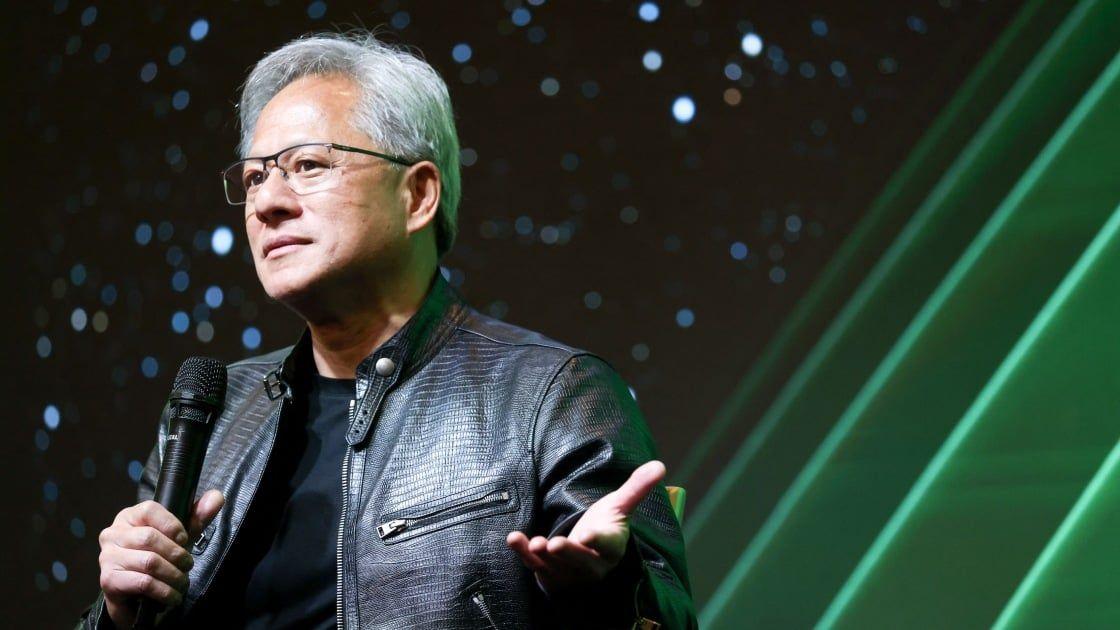Nvidia CEO Jensen Huang Advocates for Physical Sciences in the Age of AI
4 Sources
4 Sources
[1]
The CEO of the World's Most Valuable Company Says This Would Be His College Major in 2025
Nvidia's 61-year-old CEO answered this question during a trip to Beijing on Wednesday, as reported by CNBC. Huang, who graduated from college two years early at the age of 20 and is now the CEO of the most valuable company in the world, said that the "20-year-old Jensen" would have "probably chosen more of the physical sciences" over "the software sciences." The physical sciences include disciplines that study non-living systems, such as physics, earth science, and chemistry. Software sciences, on the other hand, include fields like computer science and AI engineering. Huang didn't major in either of those areas. His LinkedIn profile shows that he graduated from Oregon State University in 1984 with a Bachelor of Science in Electrical Engineering. He received a Master's in the same field from Stanford University in 1992. Electrical engineers make the physical computer hardware used by software engineers and developers. Related: Nvidia CEO Says '100% of Everybody's Jobs Will Be Changed' Due to AI Huang did not elaborate on why he would have picked the physical sciences over software engineering, but he has stated in the past that AI equalizes software development, allowing even non-programmers to generate code. At London Tech Week last month, Huang said that everyone can write code simply by prompting AI using natural language. "There's a new programming language," Huang said at the event. "This programming language is called 'human.'" Huang has repeated the same message before. Last year, he said that AI would take over coding, making learning programming languages optional. Huang previously said that if he were in school today, the first thing he would do is "learn AI." In a January interview on the podcast "Huge Conversations," Huang said that students should be asking the question, "How can I use AI to do my job better?" "Learning how to interact with AI is not unlike being someone who is really good at asking questions," Huang said on the podcast. He also said in the interview that he uses AI as a personal tutor to learn new things, program, write, and analyze concepts. Huang uses the $20 a month version of ChatGPT as a tutor and Perplexity's AI search engine to learn more about subjects like biology. Related: Nvidia's CEO Says It No Longer Matters If You Never Learned to Code: 'There's a New Programming Language' Meta CEO Mark Zuckerberg was also asked what students should study. In an interview last year with Bloomberg, Zuckerberg said that the most important skill young people should embrace is thinking "critically" and "learning values." Zuckerberg said in the interview that he hires new people based on their demonstrated ability to dive deep into a field and master it. Zuckerberg has been on a hiring spree lately, poaching AI experts from companies like OpenAI, Google, and Anthropic to build a new AI team. Huang co-founded Nvidia in 1993 and has served as its CEO ever since. Nvidia is the biggest company in the world, with a market capitalization of $4.21 trillion at the time of writing.
[2]
Jensen Huang would have ditched 'coding' for 'physics': Nvidia CEO urges mastering the real world for the next AI wave
As AI moves from perception to reasoning and into the physical world, Nvidia's Jensen Huang says the next-gen innovators must grasp physics, not just programming. Advising 2025 graduates, he champions the "physical sciences" to prepare for a robotics-driven future. His message echoes other tech giants like Elon Musk and Pavel Durov: go back to scientific basics. During a recent visit to Beijing, Jensen Huang -- CEO and co-founder of Nvidia, now the world's most valuable company -- was asked a deceptively simple question by a journalist: "If you were a 22-year-old graduate in 2025 with the same ambition, what would you focus on?" His answer didn't name AI, software, or even coding. Instead, Huang said that a younger version of himself would likely have chosen to study the physical sciences over software science. His response, as reported by CNBC Make It, may sound surprising at first. But look deeper, and it reveals where Huang believes the world -- and artificial intelligence -- is truly heading. Jensen Huang, who graduated from Oregon State University in electrical engineering and later completed his master's at Stanford, has built his career at the intersection of hardware and software. But his emphasis on physical sciences today isn't just nostalgic. It's strategic. "The next wave," Huang says, "requires us to understand things like the laws of physics, friction, inertia, and cause and effect." It's not just about data anymore -- it's about understanding how data interacts with the real world. Huang sees this evolution as part of AI's natural journey. From the era of "Perception AI" sparked by breakthroughs like AlexNet in 2012, to today's Generative AI, we are now entering the age of what Huang calls Reasoning AI. But looking forward, he envisions an even deeper transformation: Physical AI. This next wave of AI will require machines not only to reason and predict, but to interact with the physical world in meaningful ways. "Physical reasoning," Huang explains, involves abilities like object permanence, force prediction, and situational awareness -- skills that are foundational to fields like physics, mechanics, and materials science. And when this reasoning AI is embedded into real-world machines, it becomes robotics -- the future of work, industry, and human-technology collaboration. Huang's remarks come at a time when other tech leaders are also returning to foundational sciences. Telegram CEO Pavel Durov recently advised students to master mathematics as the ultimate problem-solving tool, while Elon Musk chimed in with his own recommendation: "Physics (with math)." The conversation between Durov and Musk -- two of tech's most influential figures -- went viral not just for the names involved, but for the clarity of their shared message: real intelligence isn't just about flashy tech; it's about clear, logical thinking rooted in hard sciences. Now, with Jensen Huang adding his voice to that chorus, the message is unmistakable. The world's most successful innovators are urging the next generation to dig deeper -- not just into apps and algorithms, but into the physical laws that govern our world.
[3]
Nvidia CEO Jensen Huang Says He'd Ditch Software For Physical Sciences If He Were 20 Today - NVIDIA (NASDAQ:NVDA)
Nvidia Corp. NVDA CEO Jensen Huang has expressed his preference for the physical sciences over software if he were a student today. What Happened: On Wednesday, during his visit to Beijing, Huang was asked about his educational focus if he were a 20-year-old student today. He responded by saying that he would prioritize the physical sciences over software, reported CNBC. He added that he graduated from college at the age of 20 and would have chosen physical sciences over software sciences. The physical sciences encompass non-living systems such as physics, chemistry, astronomy, and earth sciences. "For the young, 20-year-old Jensen, that's graduated now, he probably would have chosen ... more of the physical sciences than the software sciences," he said. Despite not elaborating on his decision, Huang has been a strong advocate for "Physical AI," which he believes is the next significant wave in AI development. This phase of AI requires an understanding of physical reasoning abilities, such as the laws of physics and object permanence. See Also: NYU Professor Warns Companies Against Moving Cash Into Bitcoin -- Unless You're a Strategy, PayPal, Or A Meme Stock: 'This Is A Bad Idea' He has previously stated that AI agents, which are digital workforce robots capable of reasoning, are a key focus for many tech companies. The next wave, Physical AI, will be crucial for the development of highly robotic plants and factories to address the global labor shortage. Why It Matters: In a conversation earlier this year, Huang expressed his belief in the potential of AI to enhance students' career prospects and job performance. This change in stance could signal a broader shift in the tech industry's priorities. Huang has also warned about potential job losses due to the widespread adoption of AI. In an interview with CNN's Fareed Zakaria, he stressed that maintaining employment depends on generating new ideas. He had echoed Anthropic CEO Dario Amodei's concerns about AI causing widespread job disruptions. This month, Nvidia made history by becoming the first company ever to surpass a $4 trillion market valuation, just two years after hitting the $1 trillion mark. Its stock has soared 1,591.5% over the last five years. Read Next: Jamie Dimon Reveals A Coffee Table Chat With Jeff Bezos In 1999 That Almost Made Him ' Never Wear A Suit Again...Live On A Houseboat' Disclaimer: This content was partially produced with the help of AI tools and was reviewed and published by Benzinga editors. Photo Courtesy: glen photo on Shutterstock.com NVDANVIDIA Corp$172.600.11%Stock Score Locked: Want to See it? Benzinga Rankings give you vital metrics on any stock - anytime. Reveal Full ScoreEdge RankingsMomentum87.46Growth98.66QualityN/AValue6.48Price TrendShortMediumLongOverviewMarket News and Data brought to you by Benzinga APIs
[4]
NVIDIA CEO Jensen Huang Says He'd Ditch CS Over Physical Sciences If He Were 20; Getting a Head Start on the "Physical AI" Hype Train
Well, for all those looking to enter higher education, the NVIDIA CEO has great advice, as he himself would study "physical sciences" if he were in a similar place. When Jensen talks, the world listens, and it's safe to say that we know where the "AI bandwagon" will go next. In many of his past keynotes, NVIDIA's CEO has greatly emphasized the prospects of automated workloads through "humanoid" robots, calling the segment Physical AI. Team Green believes that it is the next trillion-dollar opportunity. Now, for academic aspirants, Jensen has recommended undergraduates to check out physical sciences if they want to be a part of the next revolution. For the young, 20-year-old Jensen, that's graduated now, he probably would have chosen ... more of the physical sciences than the software sciences. Physical science is a term that isn't widely known in the industry, but it basically focuses on non-living systems. This includes physics, chemistry, astronomy, and related subjects. This branch is the core of what physical AI is going to be all about, and Jensen probably recommends individuals check it out in order to get the needed workforce. Now, we know how popular software sciences have been in the past, but with AI, they have seen a massive drop in demand, since many low-level jobs have been taken over by AI to a certain extent, starting from Big Tech organizations. Physical AI is going to be all about how models can predict real-time movements and behaviors. Interestingly, when you merge them with humanoid robots, you create an ecosystem that will allow human intervention to be replaced by AI. Jensen says that NVIDIA's next focus from generative AI would be towards physical AI, and the company is already creating products like Omniverse, Cosmos and many more services, that allows enablement of humanoid robots in human-focused workplaces. When NVIDIA's CEO gives you career advice, you should probably listen to it a bit closely since Jensen hasn't been wrong about what's next for the industry. Maybe, physical sciences does turn out to be the next big thing, replicating the success we saw with CS in the COVID-era.
Share
Share
Copy Link
Jensen Huang, CEO of Nvidia, suggests that if he were a young graduate today, he would focus on physical sciences rather than software sciences, highlighting the importance of understanding the physical world for the next wave of AI development.
Nvidia CEO's Surprising Educational Advice
Jensen Huang, the 61-year-old CEO of Nvidia, the world's most valuable company, has offered unexpected advice to future graduates. During a recent trip to Beijing, Huang stated that if he were a 20-year-old graduate in 2025, he would focus on physical sciences rather than software sciences
1
.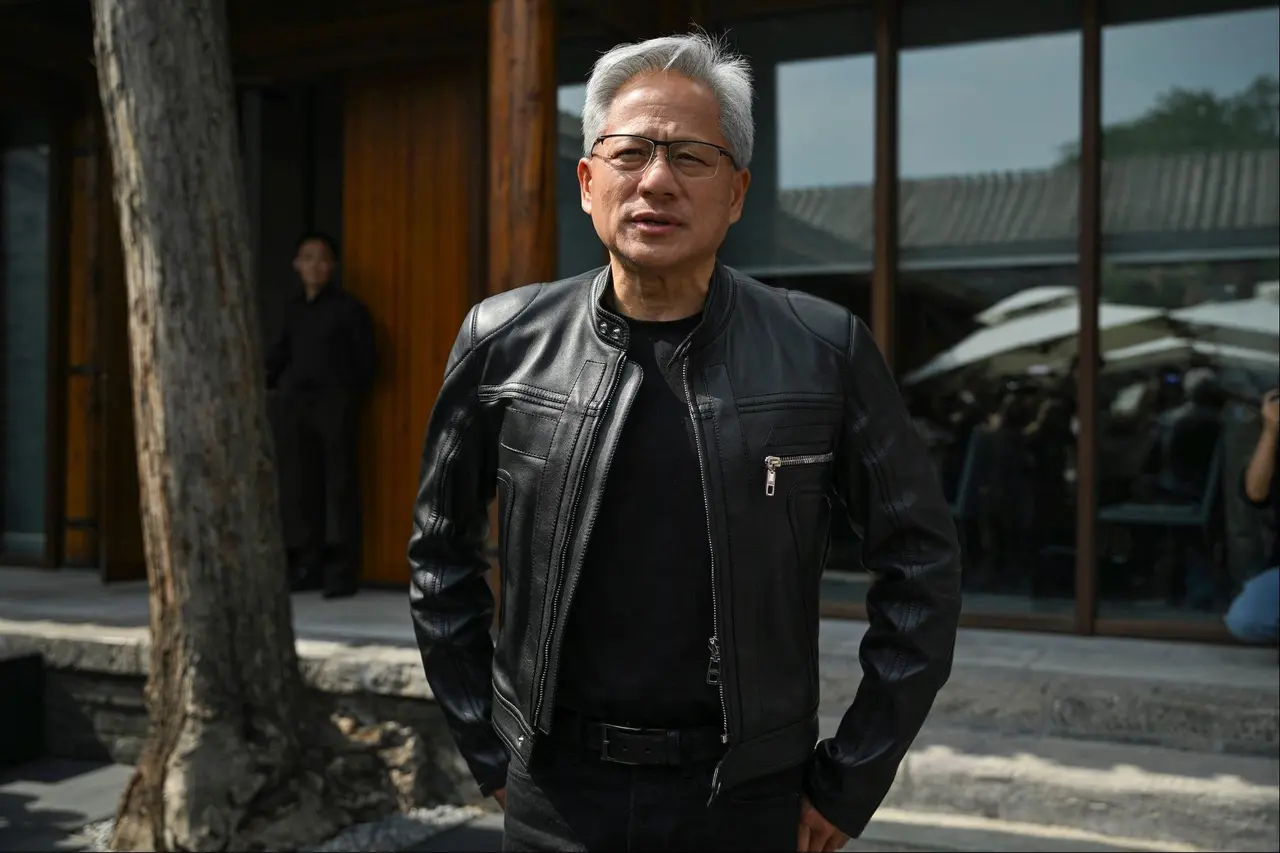
Source: Entrepreneur
The Shift from Software to Physical Sciences
Huang's recommendation marks a significant shift from the traditional focus on software development in the tech industry. He emphasizes the importance of understanding non-living systems, including physics, chemistry, and earth science
2
. This advice comes despite Huang's own background in electrical engineering and his company's prominent role in AI and software development.The Rise of "Physical AI"
The rationale behind Huang's advice lies in his vision for the future of AI. He believes that the next wave of AI development, which he terms "Physical AI," will require a deep understanding of the physical world
2
. This new phase of AI will involve machines interacting with the real world, necessitating knowledge of physics, friction, inertia, and cause-and-effect relationships.AI's Evolution: From Perception to Physical Interaction
Huang outlines the evolution of AI from "Perception AI" to "Generative AI," and now moving towards "Reasoning AI" and "Physical AI"
2
. This progression requires AI systems to develop abilities such as object permanence, force prediction, and situational awareness – skills rooted in physical sciences.Industry Alignment on Foundational Sciences
Huang's perspective aligns with other tech leaders who are advocating for a return to foundational sciences. Telegram CEO Pavel Durov has advised students to master mathematics, while Elon Musk recommends focusing on physics with math
2
. This trend suggests a growing recognition of the importance of hard sciences in driving future technological innovations.Related Stories
Implications for the Future Workforce
The shift towards physical sciences could have significant implications for the future job market. Huang has previously warned about potential job losses due to AI adoption and stressed the importance of generating new ideas to maintain employment
3
. His current advice suggests that expertise in physical sciences may become increasingly valuable in the AI-driven economy.Nvidia's Focus on Physical AI
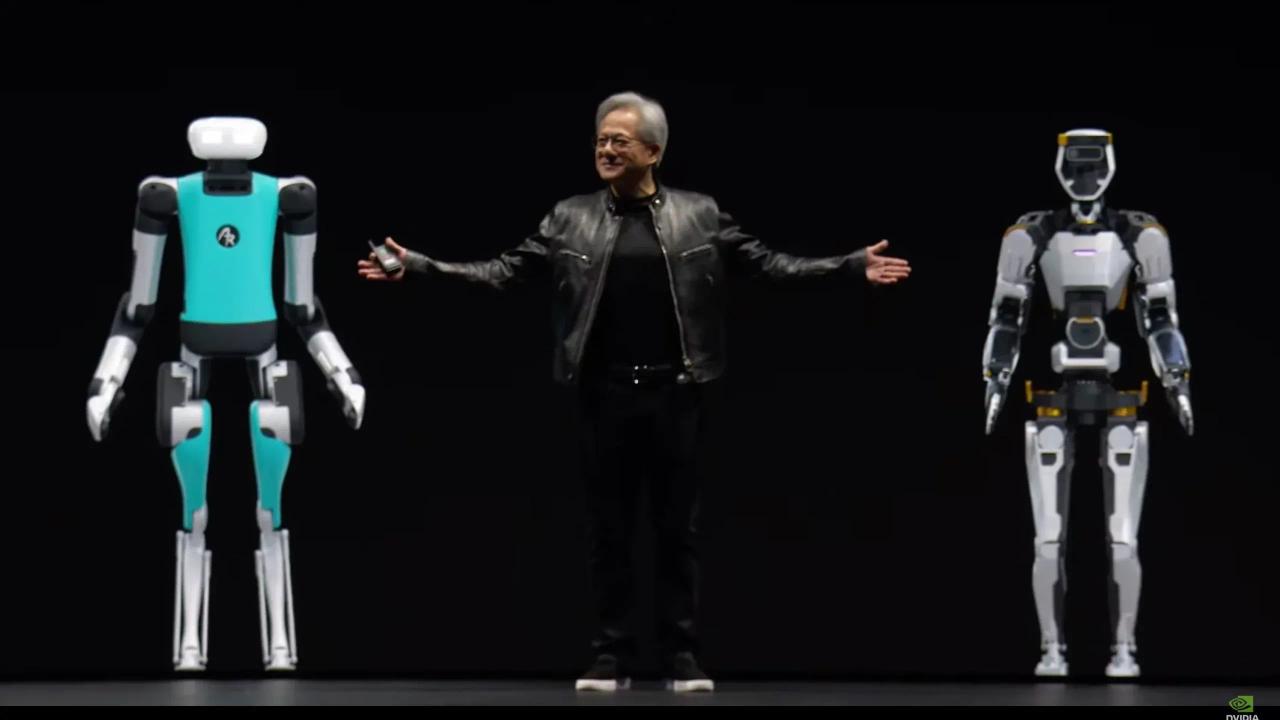
Source: Wccftech
Nvidia is already developing products and services that enable the integration of AI with the physical world. Projects like Omniverse and Cosmos are aimed at facilitating the use of humanoid robots in human-focused workplaces
4
. This focus on Physical AI aligns with Huang's vision of addressing global labor shortages through highly robotic plants and factories.The Future of Education and Innovation
Huang's advice represents a potential paradigm shift in how we approach education and innovation in the tech industry. As AI continues to evolve and integrate with the physical world, a strong foundation in physical sciences may become crucial for the next generation of innovators and problem-solvers.
References
Summarized by
Navi
[1]
Related Stories
Nvidia CEO Jensen Huang Advocates for AI Proficiency in Education and Career Development
18 May 2025•Technology
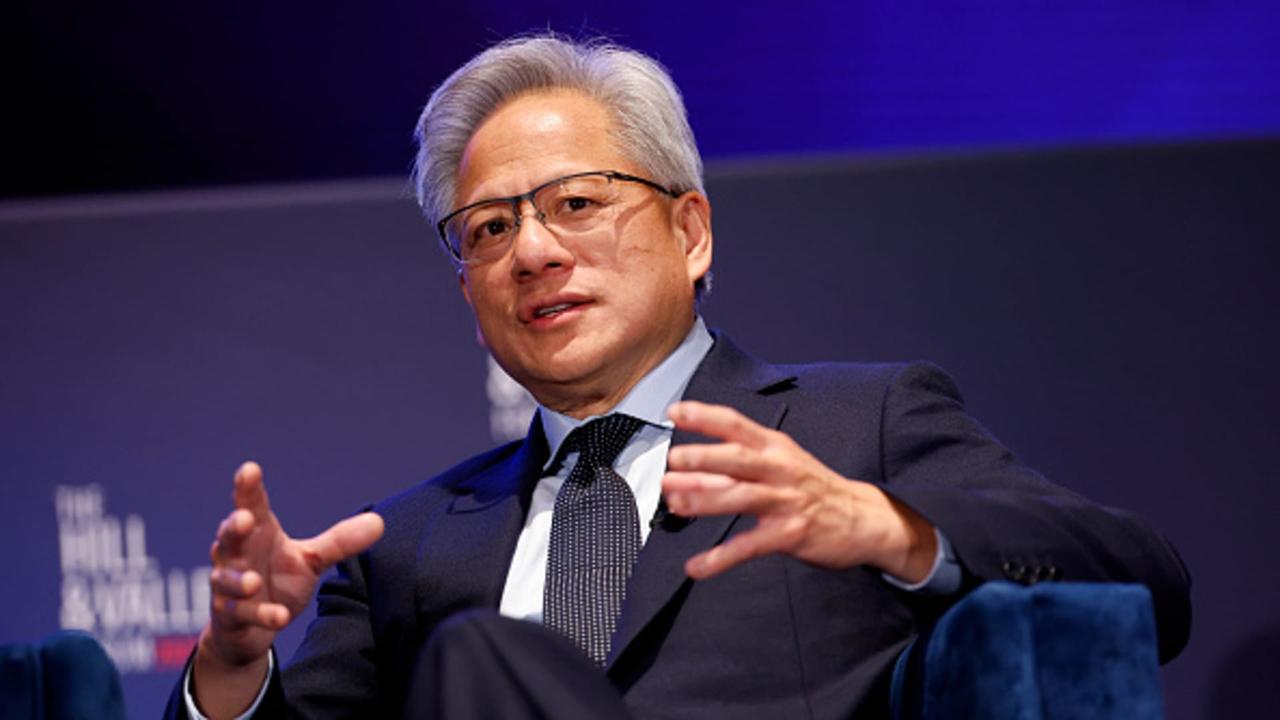
Nvidia CEO Jensen Huang Envisions Robotics as Next Multi-Trillion Dollar Opportunity
26 Jun 2025•Technology
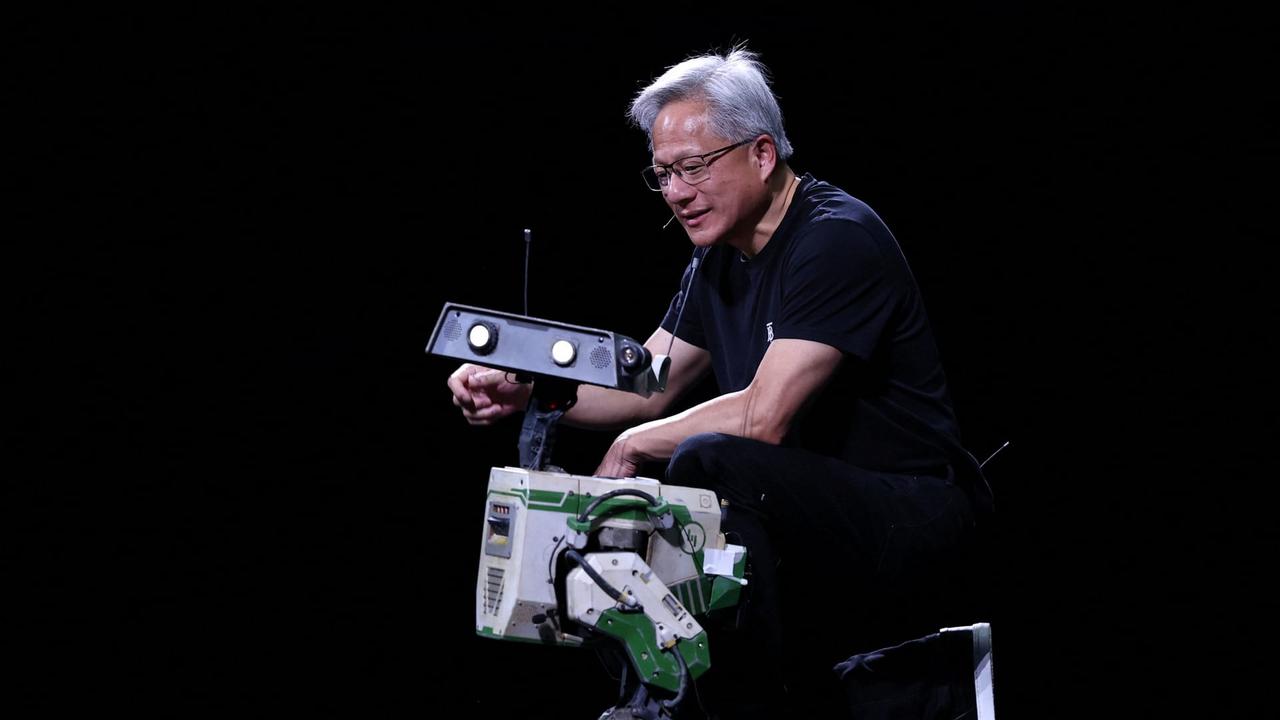
Nvidia CEO Jensen Huang Emphasizes Global Cooperation in AI Amid Potential Trump Administration Restrictions
23 Nov 2024•Technology

Recent Highlights
1
ByteDance Faces Hollywood Backlash After Seedance 2.0 Creates Unauthorized Celebrity Deepfakes
Technology

2
Microsoft AI chief predicts artificial intelligence will automate most white-collar jobs in 18 months
Business and Economy

3
Google reports state-sponsored hackers exploit Gemini AI across all stages of cyberattacks
Technology

